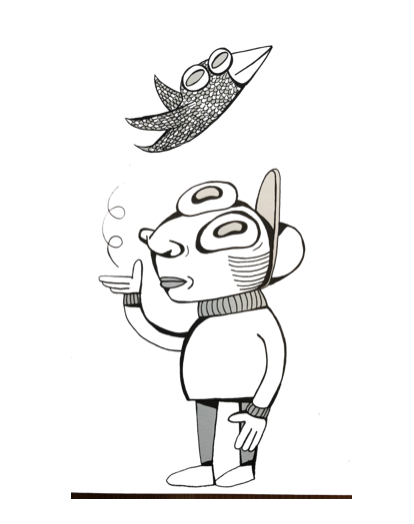The Distributed Expert
How distributed work can make experts more impactful and more affordable to businesses.
By Troy H. Campbell, Chief Scientist at OYF
“Goodbye airplane, hello something better.”
I always felt a bit unfulfilled giving a keynote.
This was because, as businesses lined my pockets with speaker fees, I knew that I was not giving them what leads to actual learning and positive results.
While there is always a place for a great keynote, keynotes are almost never the best use of experts. It seems obvious to say, but the best use of an expert is not watching the expert deliver a live, well-rehearsed speech that can already be watched somewhere online or read in a book. Even most workshops and trainings with experts don’t get close to the best.
The best use of an expert is to have them be regularly involved with your content and team. There, they can provide more acute guidance, consulting, or training, as they learn your issues deeper over time and become exponentially more useful as the relationship evolves.
The move toward distributed work involves removing the keynote-style expert, and, hopefully, encouraging us to replace it with something better. Here is an idea of what that is and what it looks like from monetary and impact perspectives.
Okay, Let’s Get Real and Talk Money
Let’s take a “modest” fly-in expert fee of $10k + expenses and prep, so roughly $12k for a single day of on-site work. The best result of that is usually that employees learn some good things and experience a little more than a keynote, but there is only so much new knowledge a brain can take in one day.
Now, let’s break down $12k in the distributed world. In the distributed world, that money could get you about 2 full days of the expert’s time. And that two full days can be spread out across many days.
In 16 hours of time, the expert can give you multiple video talks and workshops, can provide readings to deepen knowledge between sessions, can lead discussions on those readings, and can do a few one-on-ones or whatever makes sense with your work culture.
Just as important, you as a team can go ideate, prototype, and work on content, and the expert can provide many rounds of feedback, each time with greater speed and efficiency, given the rising familiarity and involvement.
All of this will lead to something far better, as the expert is more a part of your team and is providing acute expert consulting or is leading targeting training.
Doing Versus Telling
It is useful for an expert to give a talk on how to run a good meeting or how to analyze data differently. But, it is advantageous on a whole other level when the expert gives the talk and then demonstrates the idea by running one of your meetings or running analysis on your data.
Likewise, it is one thing to listen to a talk on how to write better marketing content (e.g., commercials, tweets) or internal communications (e.g., e-mails, newsletters); it is an entirely different thing when the expert prototypes new versions and edits your current ones with you.
When the expert is involved in the doing, you learn much more than when the expert is just involved in the telling.
This New World
In a pre-distributed world, I would often offer ways to work long-term with a company I had just given a fly-in talk to. I would give them relatively affordable prices and a process of a few video chats, audits, e-mails, and more.
Yet, many would decline, often saying, “That sounds good, but that’s not how we work; we don’t have that workflow.” Some companies would say yes, but these tended to be the ones that already worked in distributed ways (i.e. Netflix, Disney, UnitedHealth), usually because of a strong research culture that demands distributed workflows.
Luckily, now everyone is getting into a distributed workflow that allows for better use of outside expertise.
Last Thoughts
In distributed work, you have new access to experts, not only because your working methods have changed, but because theirs have too. Experts now are more flexible with their time. For instance, in the first quarter of the move to distributed work, as a professor, I went from having to be in a building all the time and constantly flying to academic conferences or professional gigs, to being almost completely flexible with my time.
Many of us experts are excited to finally be our full selves and to help you in more impactful ways than ever before.

